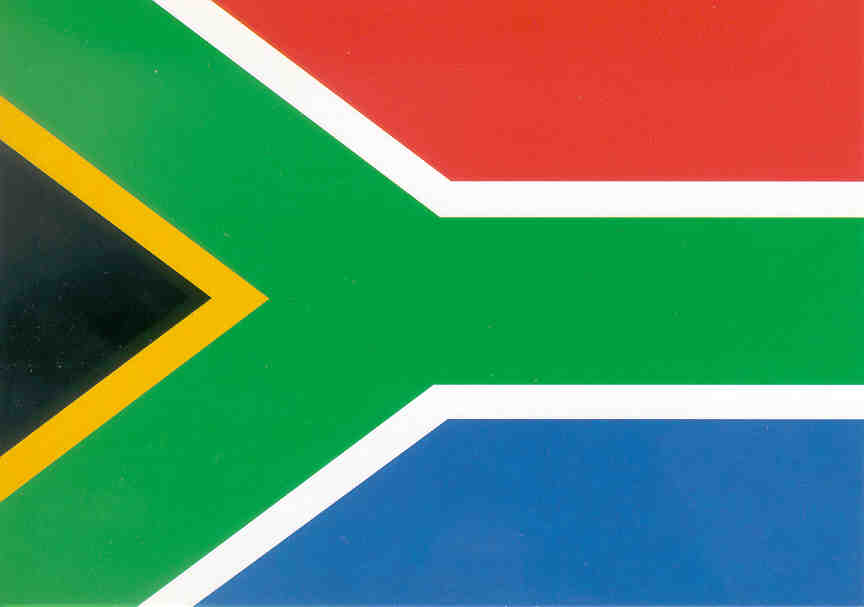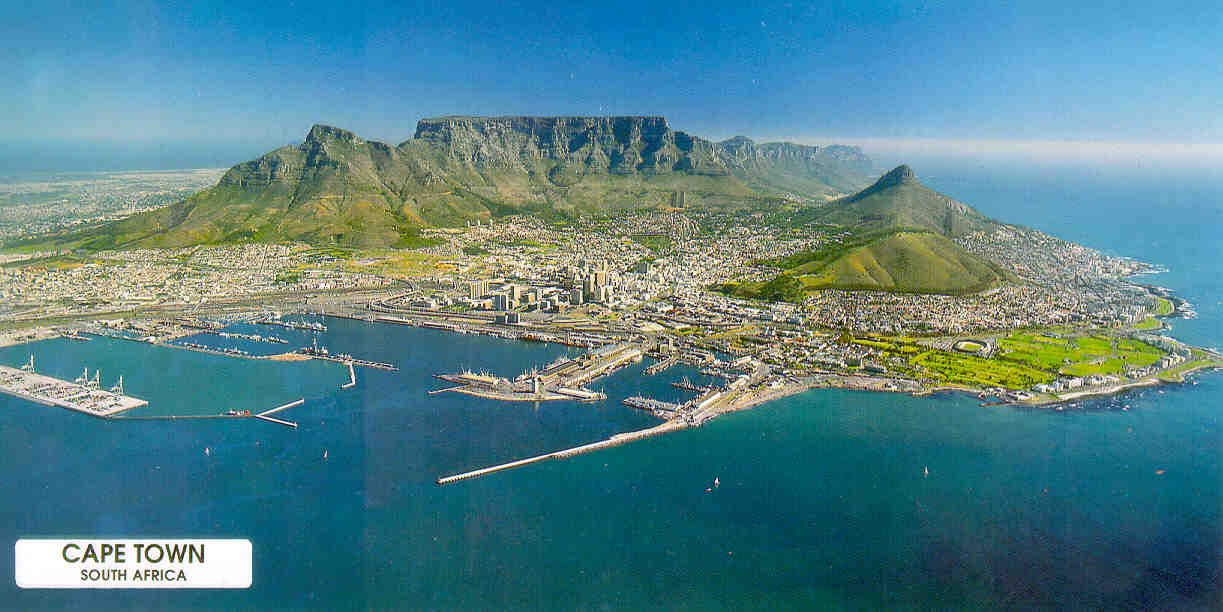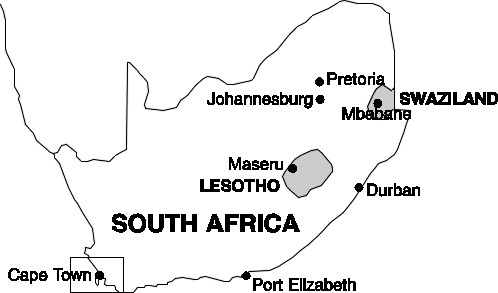



Cape Town is a beautiful city in the south-western corner of South Africa. It was the first European settlement, established in 1652. The sole purpose of the settlement was to furnish trading ships of the Dutch East-India Company with fresh fruits and vegetables. A significant percentage of the sailors would perish of scurvy without this fresh food.
About 30 years later their numbers were bolstered by the arrival of about 280 French Hugeunots (followers of the teachings of John Calvin) who were escaping religious persecution by the French. John Calvin believed that people were preordained to be saved or damned; they could do nothing during their lifetime to change what was their destiny. I believe this has something to do with the original white settlers attitudes toward the blacks: they presumed them to be 'the unchosen'.

The northernmost penguin settlement in the world is near Cape Town.

This is a view of Cape Point, the point at which the Indian and Atlantic Oceans meet. The line of foam in the top-left part of the picture is actually the line where the currents are colliding. The water temperature difference between these two currents is very significant. The warm Alguelas (sp?) current that comes down from India made the water temps on the east side of coast around 74 degrees F. The waters on the Atlantic side were in the 60 degree F. range. This leads to vastly different marine life on the two sides of the country.


Baboons are common in the nature preserve around Cape Point. They are beggars and pests. We stopped the car when we saw some and they jumped on the car and pulled on the windshield wipers and made nuisances of themselves. They have been known to grab food right out of people's hands.

This is Robben Island Prison, famous as the prison that held Nelson Mandela for 18 years of his 28 years in jail. He was sentenced to life-in-prison in 1962 and sent here. He was released in 1990 when, under great international pressure, the apartheid system began to break down. FW de Klerk offered him and other political prisoners, most of them members of the African National Congress and Pan-African Congress, an unconditional release as apartheid was beginning to be dismantled. In 1992 a national referendum was held (only whites could vote) and 68% voted to continue reforms to end apartheid. Nelson Mandela was voted the head of the ANC two years later and in 1994 in the general election (in which all races could vote) he and the ANC were swept to power. He continues to enjoy incredible popularity.
The island is about 6 miles off the coast of Cape Town. We went on a tour and the tour guide was a former political prisoner. Hearing the stories first-hand certainly added to the experience.